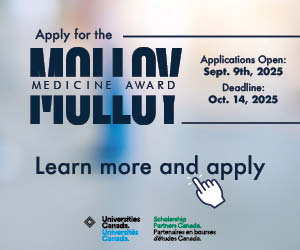Narrative CVs put researchers front and centre
New format is a vast improvement over the old Canadian Common CV.

Academics have been calling for new ways to assess research excellence for more than a decade. Initiatives such as the 2012 San Francisco Declaration and, more recently, the Coalition for Advancing Research Assessment aim to correct the adverse effects of assessments based almost exclusively on quantitative criteria.
Why? Because these criteria elevate publications in prestigious journals, which represent only one form of research contribution, over other outcomes that are equally, if not more, significant. Let’s be honest: These criteria mainly benefit scholars in high-profile fields at well-funded institutions, who have followed linear career paths. This tends to deepen inequalities rather than acknowledging the rich diversity of scientific contributions.
Anyone who’s filled out the Canadian Common CV (CCV) has experienced this first-hand. Created as a means for centralizing information in a single system, the CCV required all candidates to fill out an identical online form, regardless of their field or background. This template, used for more than a decade by federal and provincial research bodies, exemplified a narrow, quantitative concept of research, where a candidate’s experience was reduced to a series of boxes to be ticked.
In 2023, the three main federal granting councils announced plans to transition away from the CCV. The Fonds de recherche du Québec (FRQ) has also introduced its own narrative CV for grant and funding applications. Though more descriptive, the FRQ CV retains a structured format. It must contain the following three sections over a maximum of five pages (in English) or six pages (in French): 1) education and skills; 2) major contributions and experience; and 3) supervision and mentorship. This structure is designed to highlight relevant skills, expertise and collaborations, prioritizing quality over quantity.
As a PhD student nearing graduation and setting my sights on post-doctoral research, I welcomed the new CV and the chance to give a narrative account of my research. For once, I wasn’t merely rattling off my publications without any context. I was truly explaining my impact in the scientific community and society at large. I found the process much more genuine, intentional, creative and, ultimately, enjoyable.
Of course, there were challenges. Writing a self-reflective text takes more time than just filling out boxes. It requires narrative skill and a capacity to make descriptive choices, which are, after all, essential academic competencies that should be taken into account in candidate assessments. In addition, summarizing one’s most significant research contributions involves a self-assessment conducted with academic integrity and backed by solid evidence. All of this requires interdisciplinary skills that go beyond one’s technical ability to conduct research — key abilities that should be recognized in the academic world.
All of which raises the question: does the narrative CV help ease the pressure to perform? I believe the answer is yes, because the narrative CV does not annul the requirement of scientific excellence (which is essential), but rather redefines it. The CCV was a source of stress, in part, because it seemed torequire candidates to tick every box and add ever more lines to their resumé. In contrast, the narrative CV invites researchers to give a sense of their career path, and to emphasize the aspects of their experience that are really valuable to a research proposal, and why.
I tip my hat to the research funding bodies for adopting the new narrative CV, giving applicants a voice, and recognizing that excellence means more than just a collection of scientific publications and data. Excellence is about relevance, creativity, collaboration and commitment within the context of a candidate’s field. The change may feel unsettling at first, but ultimately, it’s incredibly liberating.
Featured Jobs
- Law - Assistant or Associate Professor (International Economic Law)Queen's University
- Education - Indigenous Lecturer or Assistant Professor, 2-year term (Teacher Education)Western University
- Business - Assistant Professor (Digital Technology)Queen's University
- Science - Assistant Professor (Teaching)The University of British Columbia
- Division Chair/Division Head/Chief and Academic Vascular SurgeonWestern University














Post a comment
University Affairs moderates all comments according to the following guidelines. If approved, comments generally appear within one business day. We may republish particularly insightful remarks in our print edition or elsewhere.